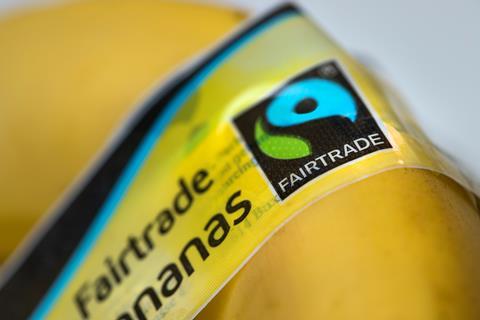Sustainability initiative created by the Fairtrade Foundation has become the first of its kind in the UK to go through the Competition and Markets Authority’s new open-door policy for green agreements between businesses
In December, a new Fairtrade initiative was proposed with the aim of helping UK grocery retailers to collaborate on sustainability in supply chains.

The Fairtrade Foundation’s new Shared Impact model brings retailers together to pool their new Fairtrade sourcing commitments to a targeted group of farming cooperatives.
Given that Shared Impact is designed to boost sustainability through sector collaboration, the Fairtrade Foundation submitted it for assessment to the Competition and Markets Authority (CMA) under its Green Agreements Guidance open-door policy, which aims to help businesses understand how they can collaborate on environmental goals without falling foul of competition law.
In response, the UK regulator has stated that at this stage, it does not have concerns about the model: it concludes that “the Shared Impact initiative is unlikely to raise competition concerns”.
According to the Fairtrade Foundation, Shared Impact will enable UK grocery retailers operating at the same level in supply chains to take collective action on enhancing sustainability and resilience in supply chains – in partnership with Fairtrade farmers at the sharp end of the climate crisis and a challenging global economic context.
As part of an initial one-year pilot, participating UK retailers would source additional Fairtrade banana, coffee or cocoa volumes from certified Fairtrade producer groups, on top of their existing Fairtrade sourcing commitments, under a new, focused sourcing approach.
“We are delighted that the CMA has today published informal guidance on our Shared Impact initiative to help businesses drive real and lasting change within their supply chains and meet their sustainability goals,” said Alexander Carnwath, head of public affairs at the Fairtrade Foundation, in December.
”Shared Impact is the first of its kind to go through the new open-door policy, demonstrating that Fairtrade is leading the way when it comes to improving sustainability in food supply chains at a time when the climate crisis demands credible and collaborative solutions.
“Farming remains one of the main drivers of deforestation globally, as well as a significant contributor to an increase in global greenhouse gas emissions and biodiversity loss,” Carnwath continued. ”Farmers and workers cannot drive forward sustainability initiatives without supply chain collaboration.
“That’s why Shared Impact is a joint pledge between farmers, retailers and Fairtrade. Expanding on the existing way we work with our retail partners, the new model allows them to target salient risks in their supply chain, drive forward a more resilient food sector, work together to advance shared goals, and fund real, lasting change in partnership with farmers and workers.”
Under the terms of Shared Impact, businesses who sign up to the initiative will be given the means to report on key impact outcomes, measure progress on sustainability commitments and share the responsibility of supply chain risk management.
For farmers and workers, it will mean longer-term sourcing commitments, closer relationships with retailers, and greater opportunities to sell more of their produce on Fairtrade terms, the Foundation outlined.
”This is expected in turn lead to better incomes, more premium funds, a greater share of power in supply chains, and more resources to invest in a greener, more sustainable future,” it noted.
“It will also allow retailers to jointly contribute Fairtrade Premium to specific groups, who will benefit from this higher level of investment – driving impact for farmers and workers within those groups.”
In its informal guidance, the CMA explained how competition law applied to UK grocery retailers who participated in Shared Impact, which the CMA considered to be an ‘environmental sustainability agreement’ (agreements between competing businesses that involve co-operation to achieve green outcomes, such as tackling climate change).



